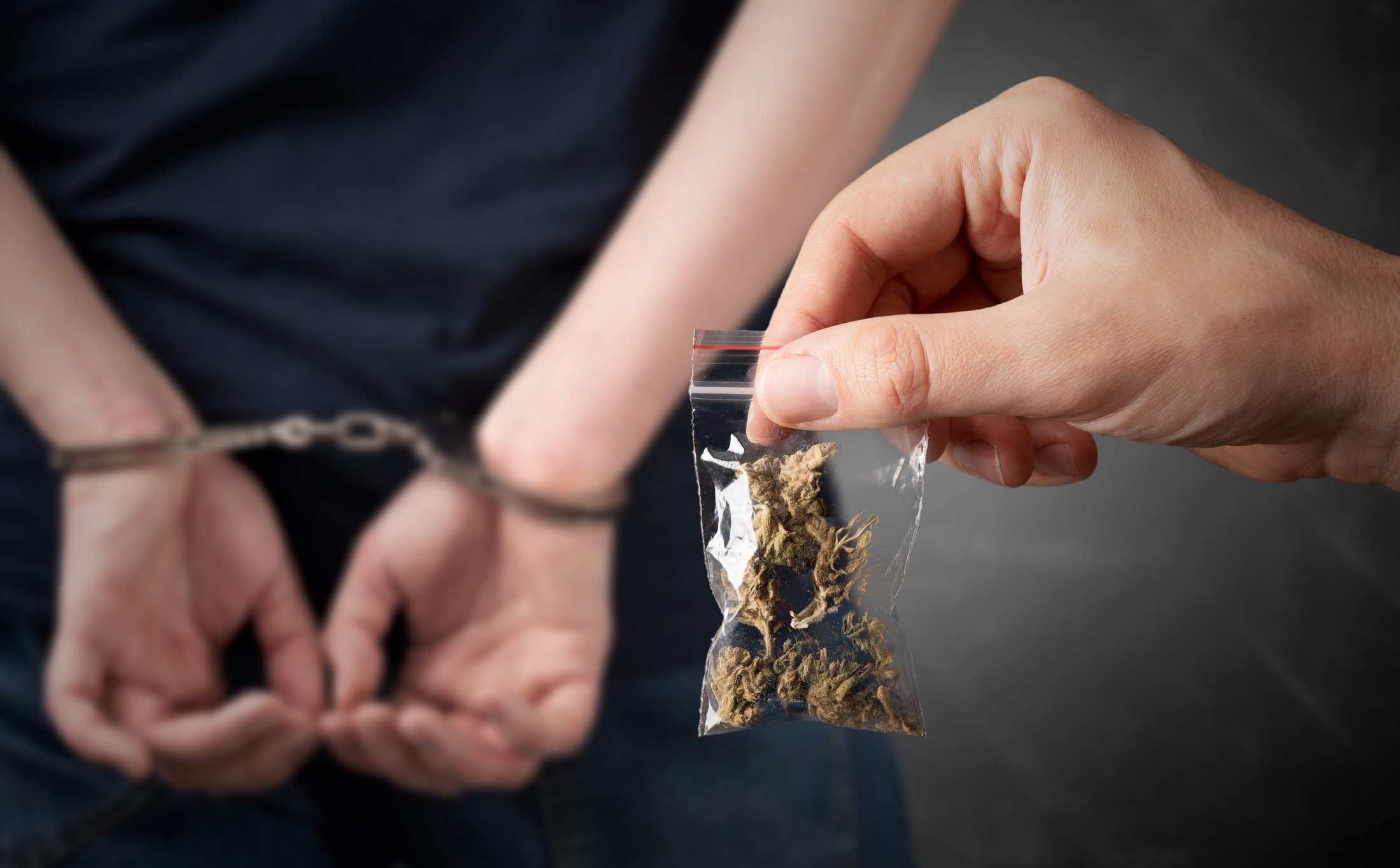By Mel Wilson, LCSW, MBA
In a recent surprise announcement, President Biden informed the nation that he was taking two significant steps related to federal marijuana policy. In that announcement, he stated that his administration will pardon individuals who have been convicted in federal court of simple possession of marijuana. However, the vast majority of those arrested, convicted, and incarcerated for possession of marijuana are decided in state criminal legal systems.
Recent FBI data regarding low-level marijuana possession as a crime shows there was one marijuana arrest every 90 seconds in this nation in 2020. Nationally, there were more than 315,000 marijuana possession arrests in 2020, accounting for one out of three drug arrests. Despite the fact people of all races sell drugs at similar rates people who are Black are 3.64 times more likely to be arrested for a marijuana offense than people who are White.
For those compelling reason, President Biden called on all governors to follow the White House’s lead and pardon individuals charged with simple marijuana possession offenses in their states. The fact is that, given the exceptionally small number of people in the federal Department of Corrections for simple possession, it is critical that governors join the President in issuing pardons. This is the only way the pardon policy can have significant impact. That said, the President should be commended for publicly taking a clear and unambiguous position that all simple marijuana possession convictions must be wiped away under both state and federal law.
It is no secret that overcriminalization across the board has been endemic in the United States for years. Therefore, it is encouraging that in his announcement the President has acknowledged the significant harm that is caused by criminalizing people for minor marijuana offenses. He also acknowledged that there are clear racial disparities in unwarranted criminalization — especially when it comes to marijuana enforcement. Biden’s acknowledgement shows he has taken the very first concrete steps at the federal level to begin to undo harmful collateral consequences resulting from locking up people for simple possession of marijuana.
While we all applaud his new pardon policy, the President’s statement that he is in favor of removing marijuana from being a Schedule I drug is more significant. A great deal of harm can be linked to this ill-advised policy. However, Biden’s action to task the Department of Justice (DOJ) and the Department of Health and Human Services (HHS) with reviewing the marijuana scheduling gives pause to many drug policy reform advocates. They are fearful that — instead of completely removing marijuana from the DEA Schedule —the administration will simply move it from a Schedule I drug to a lower level.
Not only is it senseless to treat marijuana as a Schedule I drug— along with heroin —the damage that scheduling marijuana does to individuals and to drug policy is incalculable. Moreover, to meaningfully achieve federal marijuana reform, marijuana must be completely removed from the Controlled Substance Act (CSA) . To be clear, a review of marijuana scheduling is long overdue. However, the Biden administration must not lose sight on the fact that unless marijuana is completely descheduled and decriminalized, the harms of prohibition will continue. The implications of continuing to schedule marijuana as a Schedule I drug can be summed up as follows:
- Noncitizens will continue to face the threat of automatic detention and deportation even when in compliance with their state and local laws.
- Citizens will continue to be denied federal benefits due to marijuana convictions.
- Marijuana research will continue to face hindrances.
- Veterans will not be able to access state medical cannabis programs through their V.A. doctors
- Federal employees will continue to be fired for using marijuana after work hours (even if they live in a state with legal adult use).
- Social equity entrepreneurs and marijuana businesses will not have access to funding through the Small Business Administration.
- Banks will still likely be hesitant to offer commercial loans to marijuana businesses.
The following statement from a leading drug policy organization effectively sums up the proposed next steps that reform advocate recommends:
“We welcome this move from President Biden, and it is long overdue. But it is not enough and leaves a lot of our loved ones out, which is why we need descheduling and decriminalization. Without this, people will continue to face criminal charges for marijuana. It also means that research will continue to be inhibited and states that have legalized marijuana will still be at odds with federal law. Descheduling marijuana is the only way to truly end federal prohibition. That’s why we urge the President and Congress to support the, Cannabis Administration and Opportunity Act introduced in the Senate earlier this year, which would fully remove marijuana from the Control Substances Act, provide expungement and resentencing for past marijuana convictions beyond simple possession, and comprehensively repair the harms of marijuana criminalization.” — Maritza Perez, Director Office of Federal Affairs Drug Policy Alliance.
Again, the Biden Administration should be commended and supported in its effort to bring fairness, equity, and common sense to the nation’s policy approach to marijuana use. The administration’s acknowledgement that the time has come to end criminalization of low-level marijuana possession is a beginning —as is the planned review of classification of marijuana as a Schedule I drug.
At the same time, President Biden should be reminded that these steps are lagging behind where the American public opinion is about marijuana use. The administration should also be reminded that currently Nineteen states and the District of Columbia have approved adult possession and consumption of marijuana (Twenty-seven states and the District of Columbia have decriminalized small amounts of marijuana). It is time for federal drug policy to catch up with most Americans and with state legislators.
Resources
- Drug Policy Alliance (DPA)
- Drug Policy Reform Work Group – The Justice Roundtable
- White House Statement from President Biden on Marijuana Reform
About the Author
 Mel Wilson, LCSW, MBA, is the retired Senior Policy Advisor for the National Association of Social Workers. He continues to be active on a range social policy area including youth justice, immigration, criminal justice, and drug policy. He is a co-chairperson on the Justice Roundtable’s Drug Policy Reform Working Group.
Mel Wilson, LCSW, MBA, is the retired Senior Policy Advisor for the National Association of Social Workers. He continues to be active on a range social policy area including youth justice, immigration, criminal justice, and drug policy. He is a co-chairperson on the Justice Roundtable’s Drug Policy Reform Working Group.
Disclaimer: The National Association of Social Workers invites members to share their expertise and experiences through Member Voices. This blog was prepared by Mel Wilson in his personal capacity and does not necessarily reflect the view of the National Association of Social Workers.




